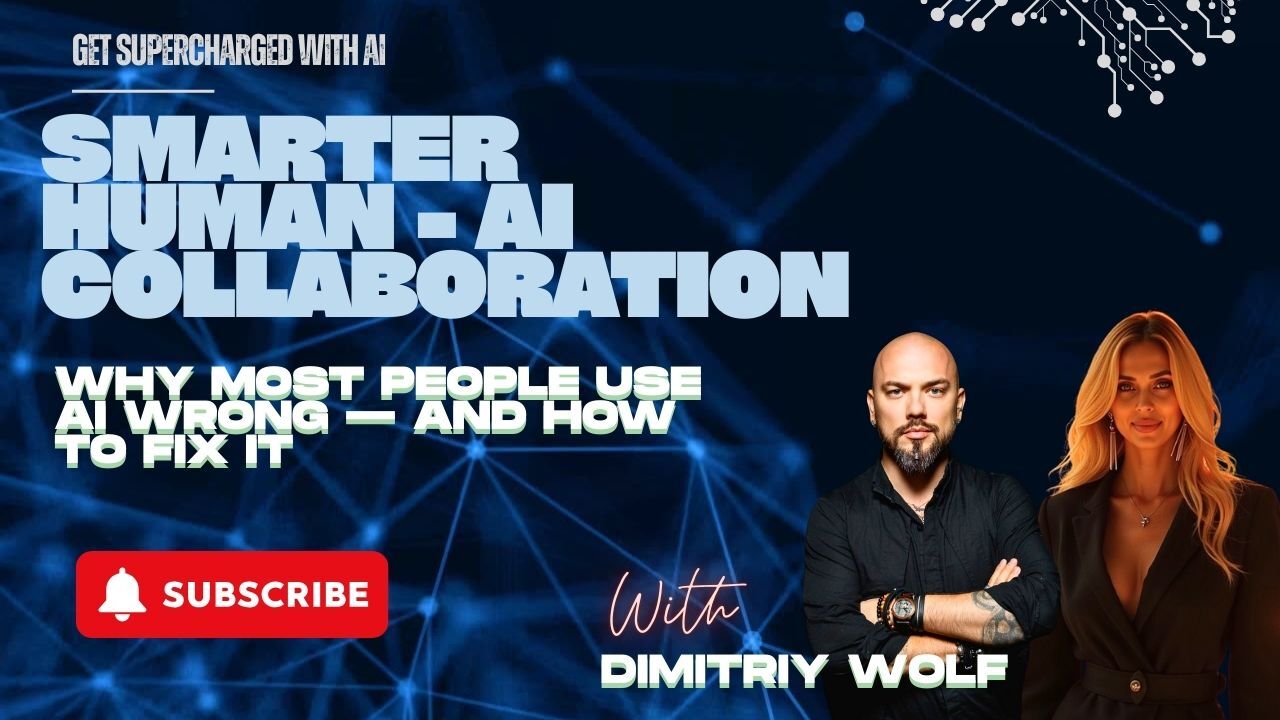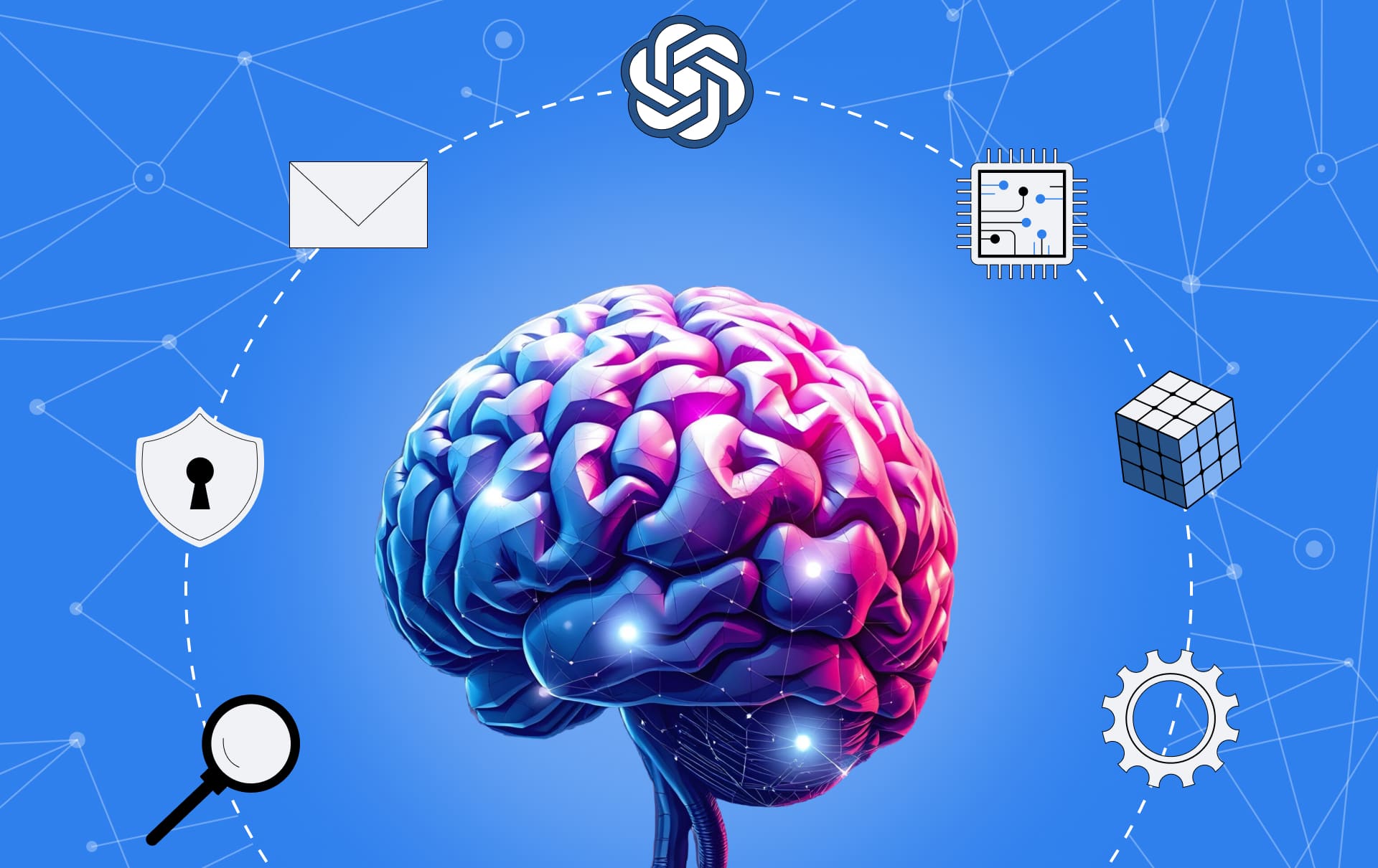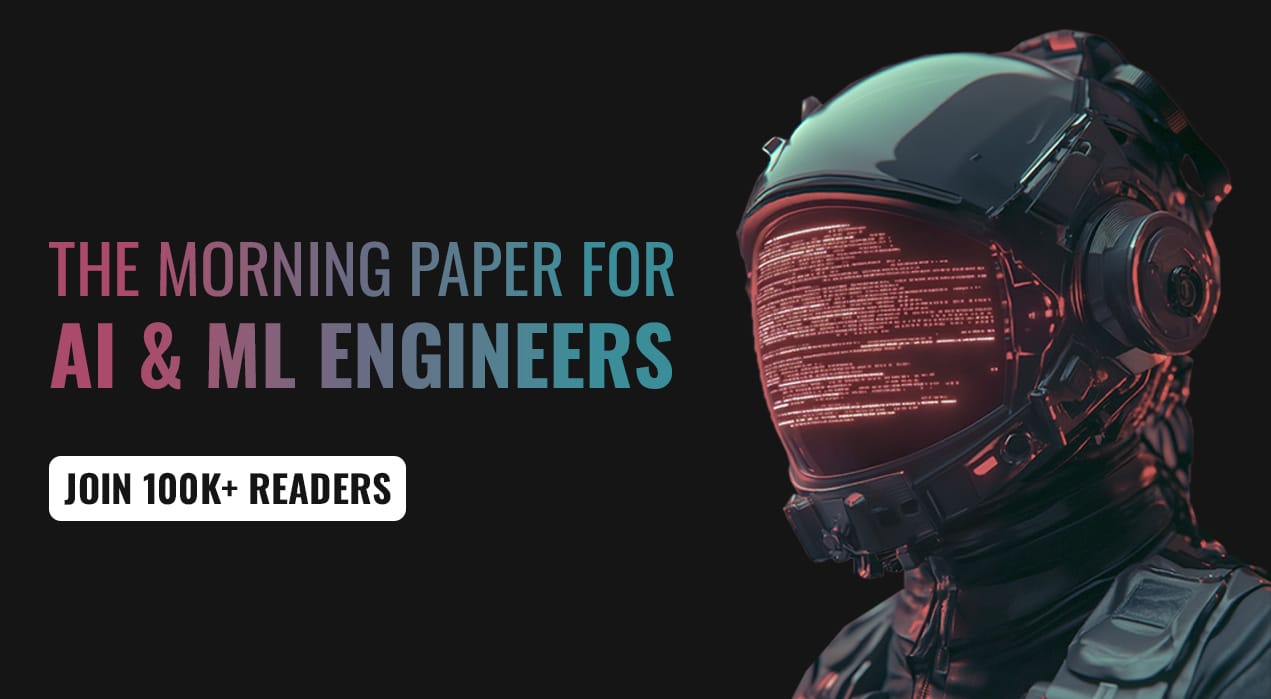Good morning ☀️, leader of the next generation.
Sometimes we give technology too much credit or too much blame.
The truth is, it’s a tool. How we use it is what matters.
Used with purpose, it helps us see more clearly, build faster, and express ourselves in new ways.
It’s not about chasing trends. It’s about creating something real.
WHAT'S AT STAKE TODAY ⚡
- Sam Altman says OpenAI will have a 'legitimate AI researcher' by 2028 🧠
- Mem0 raises $24M from YC, Peak XV and Basis Set to build the memory layer for AI apps 💰
- OpenAI completes its for-profit recapitalization 📈
- VC Vinod Khosla says the US government could take 10% stake in all public companies to soften the blow of AGI 🏛️
- UNC Chancellor Lee Roberts on pushing his university into the AI age 🎓
- 'Silicon Valley' star Thomas Middleditch makes a surprise appearance at TechCrunch Disrupt 2025 🎭
- NVIDIA and Nokia to pioneer the AI platform for 6G — Powering America's return to telecommunications leadership 📡
- How Bill Gates wrote the playbook for AI 📖
OpenAI targets autonomous AI researcher capability within four years
Sam Altman says OpenAI will have a 'legitimate AI researcher' by 2028

OpenAI CEO Sam Altman has unveiled an ambitious roadmap for artificial intelligence development, announcing that the company expects to achieve a "legitimate AI researcher" by 2028. Speaking during a Tuesday livestream, Altman outlined an accelerated timeline that includes developing an intern-level research assistant by September 2026.
The announcement coincided with OpenAI's significant corporate restructuring, transitioning from its original non-profit model to a public benefit corporation. This strategic shift removes previous limitations while opening new avenues for capital investment and scaling operations.
Jakub Pachocki, OpenAI's chief scientist, joined Altman to elaborate on the vision. He described the planned AI researcher as "a system capable of autonomously delivering on larger research projects" – distinguishing it from human researchers who study AI. Pachocki boldly predicted that deep learning systems could achieve superintelligence within a decade, defining it as systems surpassing human intelligence across numerous critical tasks.
OpenAI's strategy centers on two primary approaches: continuous algorithmic innovation and dramatically expanding "test time compute" – the computational resources models dedicate to problem-solving. Current models can tackle tasks requiring roughly five-hour time horizons and match elite human performance in competitions like the International Mathematical Olympiad. However, Pachocki envisions extending these capabilities significantly by allowing models substantially more computational power for complex problem-solving.
The company's vision extends beyond incremental improvements. For major scientific breakthroughs, OpenAI is prepared to dedicate entire data centers' computational capacity to single problems. This approach aims to enable AI systems to make discoveries faster than human researchers, address challenges beyond current human capabilities, and accelerate technological innovation across fields including medicine, physics, and technology development.
The corporate restructuring creates a framework supporting these aggressive timelines while maintaining responsible AI development commitments. Under the new structure, the non-profit OpenAI Foundation retains 26% ownership of the for-profit entity and governs research direction. The foundation has committed $25 billion specifically for using AI to cure diseases and will oversee AI research and safety initiatives.
Altman emphasized that the for-profit structure's enhanced fundraising capabilities are crucial for scaling the necessary infrastructure. The company has committed to deploying 30 gigawatts of infrastructure – representing a staggering $1.4 trillion financial obligation over the coming years. This massive investment underscores OpenAI's confidence in achieving its ambitious research goals.
The timeline represents a significant acceleration in AI development expectations. Moving from current capabilities to autonomous research systems within four years would mark a revolutionary leap in artificial intelligence functionality. Such systems could potentially transform scientific research by operating continuously, processing vast amounts of information, and pursuing multiple research threads simultaneously.
However, the ambitious projections raise questions about feasibility and implications. Achieving truly autonomous AI researchers would require solving numerous technical challenges, including ensuring reliable reasoning, maintaining research quality, and managing potential safety concerns. The timeline also assumes continued exponential improvements in both algorithmic development and computational scaling.
OpenAI's restructuring reflects the enormous capital requirements for advancing AI research at this scale. The transition from non-profit to public benefit corporation enables access to traditional investment markets while theoretically maintaining mission-driven focus through the foundation's oversight role.
The announcement positions OpenAI at the forefront of the race toward artificial general intelligence and beyond. If successful, autonomous AI researchers could accelerate scientific discovery across multiple domains, potentially solving complex global challenges in healthcare, climate science, and technology development faster than traditional human-led research approaches.
Tech moves fast, but you're still playing catch-up?
That's exactly why 100K+ engineers working at Google, Meta, and Apple read The Code twice a week.
Here's what you get:
Curated tech news that shapes your career - Filtered from thousands of sources so you know what's coming 6 months early.
Practical resources you can use immediately - Real tutorials and tools that solve actual engineering problems.
Research papers and insights decoded - We break down complex tech so you understand what matters.
All delivered twice a week in just 2 short emails.
Mem0 secures $24M to create persistent memory layer for AI applications
Mem0 raises $24M from YC, Peak XV and Basis Set to build the memory layer for AI apps

Mem0, founded by serial entrepreneur Taranjeet Singh, has raised $24 million to solve a critical AI limitation: memory persistence. Unlike humans who can resume conversations after interruptions, AI models forget everything and restart from scratch.
The startup offers a "memory passport" that travels across AI apps and agents. With 41,000 GitHub stars, 13 million Python downloads, and processing 186 million API calls quarterly, Mem0 enables developers to build AI applications that remember user interactions and personalize experiences across platforms.
⚡ More AI Bites
- 💰🤖 OpenAI completes its for-profit recapitalization
- 🏛️💼 VC Vinod Khosla says the US government could take 10% stake in all public companies to soften the blow of AGI
- 🎓🤖 UNC Chancellor Lee Roberts on pushing his university into the AI age
- 🎬💻 'Silicon Valley' star Thomas Middleditch makes a surprise appearance at TechCrunch Disrupt 2025
- 📡🤖 NVIDIA and Nokia to pioneer the AI platform for 6G — Powering America's return to telecommunications leadership
- 💡📖 How Bill Gates wrote the playbook for AI
🎙️ NEW EPISODE DROP:
The Future of Human + AI Collaboration | What are The Smarter Ways to Use AI

I sat down with Dimitriy Wolf — social engineer, psycholinguist, and advisor to presidents, sheikhs, and TEDx speakers — to break down why most people use AI wrong.
We covered how to think *with* AI (not just prompt it), how to build authentic brand voices, and what yachts have to do with artificial intelligence.
If you're still using ChatGPT like a search bar — you're getting left behind.
⚡ Trends for the Future
Super Teacher is building an AI tutor for elementary schools — catch it at Disrupt 2025
AI-powered tutoring app makes private education accessible for $15 monthly.
Tutoring remains one of education's most powerful tools, yet fewer than 10% of U.S. students receive it due to costs that can reach thousands monthly. Former Google product manager and educator Tim Novikoff aims to change this through his startup Super Teacher, offering AI-powered tutoring for elementary students at just $15 per month.
The four-year-old company has gained significant momentum, attracting roughly 20,000 families and partnerships with public schools across New York, New Jersey, and Hawaii. Super Teacher has earned recognition as a Startup Battlefield Top 20 finalist at TechCrunch Disrupt 2025 in San Francisco.
Novikoff's motivation stems from his teaching experience in New York City, where he witnessed stark educational disparities between Harlem students who lacked tutoring access and Stuyvesant High School students who almost universally received private instruction. "Tutoring is by far the most effective intervention that can be provided to kids for education," Novikoff explained. "It's really unfair that not everyone gets this opportunity."
Super Teacher's app features animated tutors with AI-generated voices that guide students through interactive, voice-based lessons. Unlike many educational technology tools, the platform avoids large language models, instead using a deterministic system designed to always provide accurate answers and eliminate the inaccuracies that can plague AI responses.
While championing AI tutors' potential impact, Novikoff emphasizes they won't replace human teachers. He positions AI tutors as educational tools similar to smart boards or calculators rather than complete replacements for classroom instruction.
Currently focused exclusively on elementary students—a decision made partly to help his own children and because few edtech companies target this age group—Super Teacher plans to expand across grade levels and forge partnerships with additional school districts nationwide. Novikoff previously founded Fly Labs, a mobile video-editing app acquired by Google in 2015.

⚡ You’re Smart. Strategic. Intentional. So Let’s Be Real:
Where Are You Holding Back— On Purpose?
Every smart operator has something they’re intentionally avoiding.
Not because they’re lazy — but because it’s risky, unknown, or just... a bit *uncomfortable*.
So what’s that thing for you?
That one decision, move, or experiment you know would push you forward — but you’ve been choosing not to do it.
Tell us — and we’ll share a tactical POV or tool to help you rethink it.
No fluff. Just momentum.
AI will be humanity's most powerful catalyst for positive change, helping us unlock solutions we never imagined possible and build a world of shared prosperity
Arvind Krishna is the Chairman and CEO of IBM, where he has led the company's focus on hybrid cloud computing and artificial intelligence, particularly through IBM's Watson platform and quantum computing initiatives. His leadership in enterprise AI and his advocacy for responsible technology development have shaped how businesses approach digital transformation, and he continues to champion AI solutions that augment human capabilities while maintaining ethical standards and transparency.
🎬 How to Use AI Agents to Build High-Converting Video Ads
Build once. Scale everywhere. In just minutes.

What if: Instead of spending weeks scripting, editing, and testing ads… you could build 10 variations of a high-converting video in 15 minutes — with agents handling the voiceover, visuals, call-to-action, and even the hook testing?
That’s exactly what we’ll show you this week — live.
Why This Changes Everything for Founders 🧠
- 🎥 Fast-Track Ad Creation: From idea to launch-ready video in under an hour — no team needed.
- 🔁 Test Like a Pro: Run A/B tests on 10 hooks, CTAs, or visuals — while you sleep.
- 💰 Better ROAS, Less Guessing: Let agents learn what your audience *actually* responds to.
- 📦 Works for Any Product: Digital or physical — agents adapt to your niche & brand voice.
📅 Join the Live Session w code Supercharged
We’ll walk you step-by-step through building your own ad-generating agent — no code needed.
👉 Click here to save your seat for the webinar
You’ll leave with a working prototype, free templates, and 5x more speed in your next ad campaign.
🎁 Bonus for Attendees:
- ✅ AI Agent Template for Ad Generation
- ✅ "Top 10 Hooks That Convert" Prompt Pack
- ✅ Entry to win a Free AI Strategy Audit
Episode 1: AI Education Without Limits
I sat down with Dr. José Fernández from the Miami Dade College AI Center to explore how AI is transforming education.
We discussed how students today can access world-class AI training with almost zero student loan debt — making innovation more accessible than ever.
Episode 2: What if your story were your sales strategy?
I sat down with Maury Rogow, a Hollywood producer and branding mastermind behind $2.5B in brand growth.
We talked about why the brands that feel effortless aren’t the loudest — they’re just the most aligned.
🌡️ Use the Satisfaction Thermometer to show us how much you enjoyed The Supercharged today ;)

The Supercharged is aiming to be the world's #1 AI business magazine and is on a mission to empower 1,000,000 entrepreneurs worldwide by 2025, guiding them through the transition into the AI-driven creative age. We're dedicated to breaking down complex technologies, sharing actionable insights, and fostering a community that thrives on innovation, to become the ultimate resource for businesses navigating the AI revolution.
The Supercharged is the #1 AI Newsletter for Entrepreneurs, with 25,000 + readers working at the world’s leading startups and enterprises. The Supercharged is free for the readers. Main ads are typically sold out 2 weeks in advance. You can book future ad spots here.
I'm sending this email because you registered for one of our workshops or our affiliates brought you. You can unsubscribe at the bottom of each email at any time.


